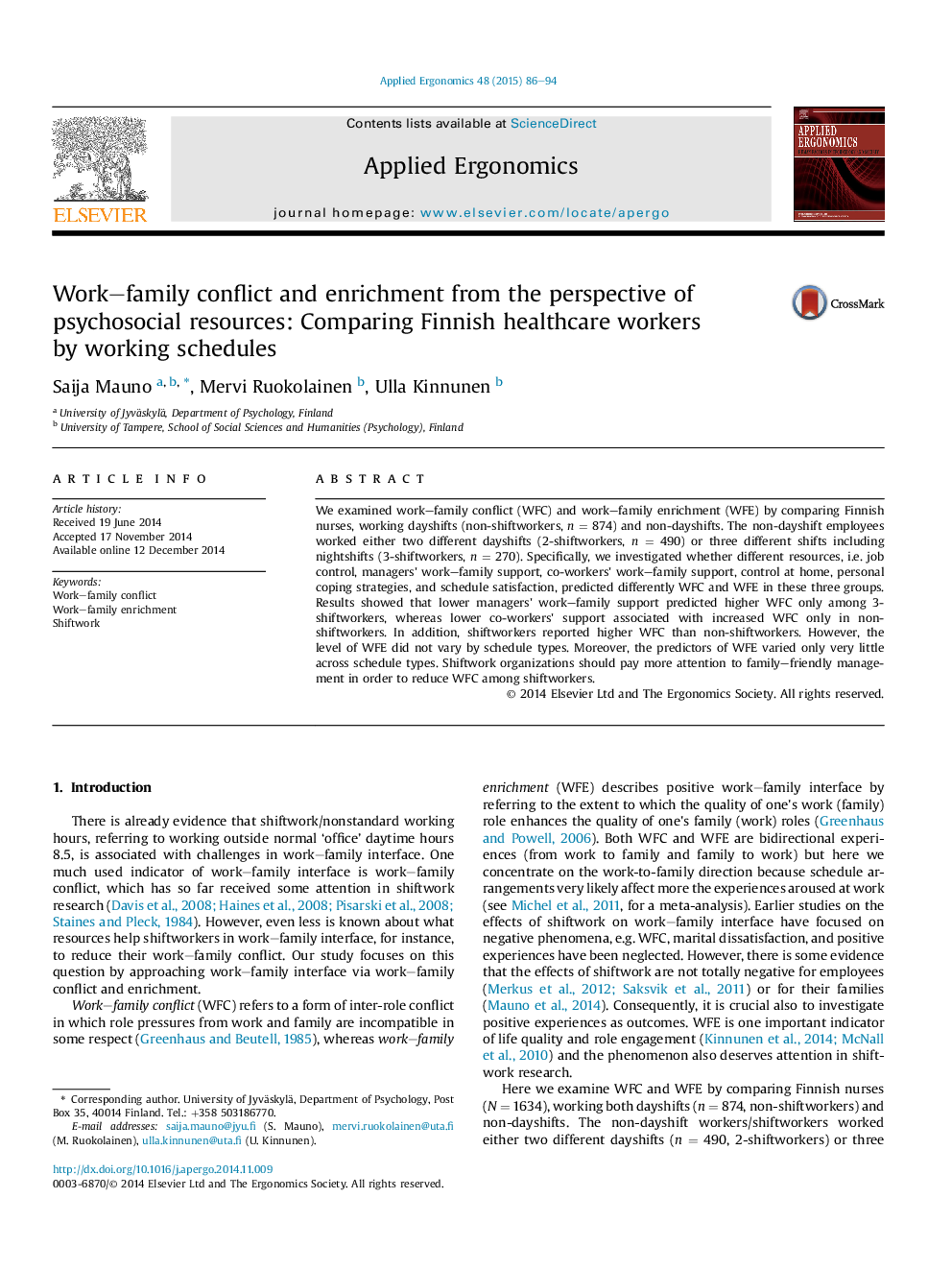| Article ID | Journal | Published Year | Pages | File Type |
|---|---|---|---|---|
| 550029 | Applied Ergonomics | 2015 | 9 Pages |
•3-shiftwork may imply less managers' support relating to high WFC.•Lacking co-workers' support may be more detrimental for non-shiftworkers associating with high WFC.•Certain resources may be equally beneficial in different schedule arrangements in terms of WFC and WFE.•Shiftwork organizations should pay more attention to family–friendly management.•All organizations should improve their employees' job control and schedule satisfaction.
We examined work–family conflict (WFC) and work–family enrichment (WFE) by comparing Finnish nurses, working dayshifts (non-shiftworkers, n = 874) and non-dayshifts. The non-dayshift employees worked either two different dayshifts (2-shiftworkers, n = 490) or three different shifts including nightshifts (3-shiftworkers, n = 270). Specifically, we investigated whether different resources, i.e. job control, managers' work–family support, co-workers' work–family support, control at home, personal coping strategies, and schedule satisfaction, predicted differently WFC and WFE in these three groups. Results showed that lower managers' work–family support predicted higher WFC only among 3-shiftworkers, whereas lower co-workers' support associated with increased WFC only in non-shiftworkers. In addition, shiftworkers reported higher WFC than non-shiftworkers. However, the level of WFE did not vary by schedule types. Moreover, the predictors of WFE varied only very little across schedule types. Shiftwork organizations should pay more attention to family–friendly management in order to reduce WFC among shiftworkers.
